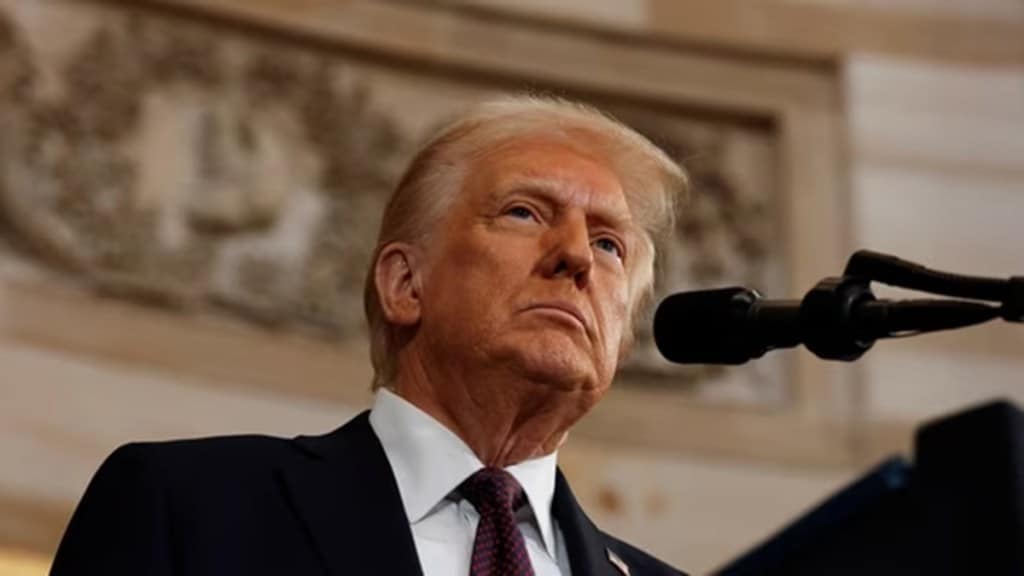The second day of Donald Trump’s administration has certainly been a turbulent one for the receivers. On 20 January, President Donald Trump signed an executive order mandating the shutdown of DEI offices across federal agencies, marking a major escalation in his campaign against what he calls ‘radical’ diversity initiatives. This move, in line with his broader efforts to reshape American policies, is expected to resonate far beyond the federal bureaucracy, possibly reshaping the DEI landscape in both public and private sectors.
A political shift in the DEI debate
Trump’s executive actions are far from unprecedented. The president had previously signalled his discontent with DEI programmes during his first term, notably issuing an executive order in 2020 that sought to limit federal DEI training. With his return to office, this focus on dismantling DEI initiatives has intensified, with a direct focus on reasserting what he views as a merit-based hiring system. Trump believes that DEI programmes ‘undermine national unity’ and foster ‘unlawful, corrosive, and pernicious’ practices that prioritise race over merit. According to a White House statement, this move aligns with Trump’s campaign promise to dismantle what he perceives as ‘wasteful’ diversity spending, Reuters reported.
The president’s argument echoes a broader critique voiced by conservative groups who have long argued that DEI initiatives contribute to reverse discrimination, claiming that diversity goals often lead to hiring decisions based on race or gender rather than skills and qualifications. Trump’s directive targets federal DEI staff, who are now being placed on paid leave as agencies prepare to close all related offices and remove online resources associated with DEI programmes. According to media reports, federal agencies must have a plan in place for laying off DEI staff entirely by 31 January.
What will the impact of Trump’s crackdown on DEI be on federal agencies and the private sector?
The immediate impact of this directive is clear—DEI-focused employees within the federal government face an uncertain future. With offices being closed and all related initiatives suspended, government contractors and institutions that rely on federal funds will also likely feel the repercussions. Trump has encouraged the private sector to follow the lead of the federal government, promoting the idea that DEI policies in hiring, training, and procurement represent ‘illegal discrimination’ against individuals not from marginalised groups.
The move has already prompted a ripple effect across the corporate world. Major companies such as Amazon and Meta have recently scaled back their DEI efforts, while others like Walmart, McDonald’s, and Boeing announced similar decisions as they face shifting political winds. The concern among these corporations is clear: failure to adapt could lead to legal challenges or damage to their public image. The question remains—how many other organisations will follow suit, and how far will this movement extend?
Legal and cultural implications: A chilling effect
The Trump administration’s aggressive stance on DEI programmes is expected to lead to significant legal challenges. However, as civil rights advocates point out, the real danger may lie in the so-called ‘chilling effect’ that this crackdown will have on institutions across the country. Some universities, fearing backlash or funding cuts, have already moved to dissolve DEI offices even in states where such policies have not been legally mandated, media reports claimed. Texas, for example, has imposed a ban on DEI offices in universities, with other states such as Florida and Alabama also limiting or outright prohibiting such programmes. According to Reuters, the broader concern is that the ambiguity surrounding these legal moves will prompt institutions to preemptively roll back their diversity initiatives, fearing legal retribution.
This legal uncertainty could potentially lead to widespread overcorrections, as institutions may seek to avoid accusations of bias by scaling back or eliminating programmes that promote racial or gender equity, even if they aren’t legally required to do so. Universities, non-profits, and even some private corporations are now in a tight spot, trying to navigate a growing divide between public expectation, legal restrictions, and the pursuit of inclusivity.
What will be the future of DEI programmes?
As the battle over DEI programmes rages on, it seems clear that the stakes are higher than ever. Trump’s administration has set the tone for what could be an aggressive crackdown on diversity policies nationwide, but the long-term effects remain uncertain. Likely, a legal showdown will soon unfold, with advocates for diversity and civil rights taking the fight to the courts. Whether these initiatives are truly ‘radical’ or an essential part of building a fairer society is a question that the American public and its institutions will need to grapple with. The Trump administration has made it clear that it intends to reshape the federal government in its image, focusing on a colourblind, merit-based approach. However, critics argue that this method risks sidelining the systemic inequalities that DEI programmes aim to address. The upcoming months will likely see a clash of ideologies that will define the future of diversity efforts for years to come.
As the political wind is changing by the day, only time can tell whether DEI programmes will ultimately be dismantled, just as Trump promised, or will they evolve in response to new challenges. For now, one thing is clear: DEI offices are closing and the next chapter in the debate over diversity in America is just beginning.

